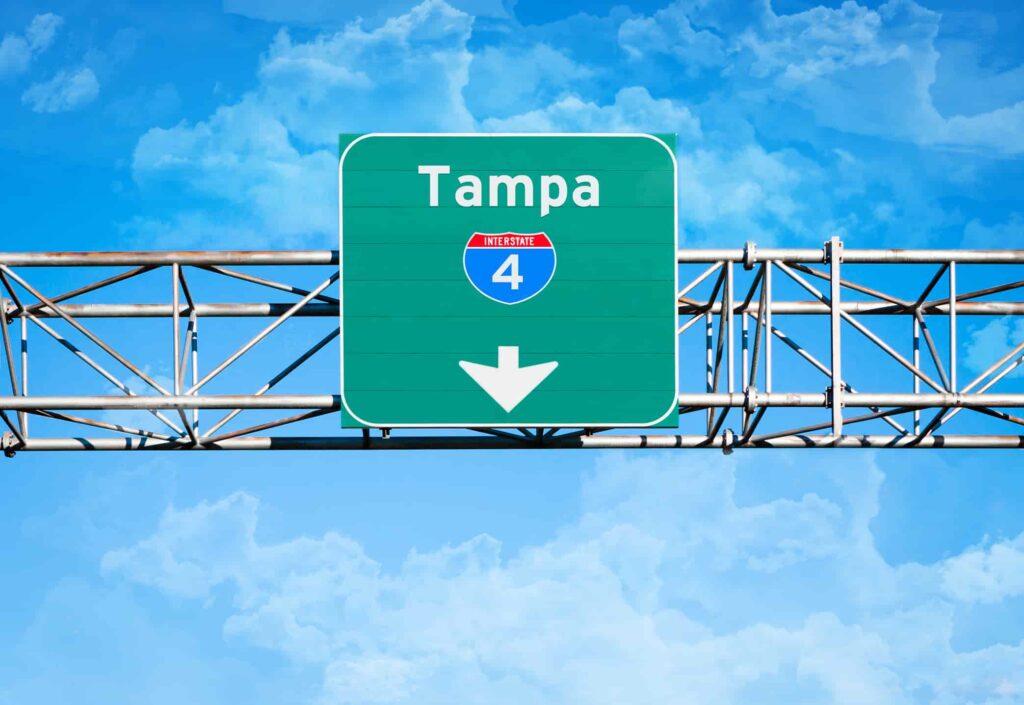Tampa’s I-4 Named Worst in the Nation for Car Accident Fatalities

Florida is famous for many things. It holds the title for the oldest European settlement in the United States. Florida is known for its sunshine, tourism, and its leadership in the U.S. space program. The state also grows more citrus fruit than any other state. Floridians have a lot to be proud of.
However, there’s one title that Florida residents aren’t so happy to have. A recent study found that Florida’s I-4 is the most dangerous highway in the United States. Researchers based the study on deaths per mile during a six-year period. Those who have been injured in an accident on I-4 will need to work with a Tampa car accident attorney to protect their interests.
Get your free legal consultation regarding your Car Accident Today.
I-4 Is the Most Dangerous Highway in America
Online insurance marketplace EverQuote says that I-4 is the most dangerous highway to drive on in the United States. They say that in a 132-mile stretch of highway, there are 1.41 fatalities per mile. The stretch in question runs from Tampa to Daytona Beach.
Florida Has Three Highways in the Top 10
In addition to I-4, the State of Florida has two other highways in the top 10 for the most dangerous highways in the United States. Florida’s I-95 is in fifth place with .89 traffic fatalities per mile. I-95 runs 1,926 miles from Miami to Maine.
In seventh place is Florida’s I-10. The highway stretches 2,460 miles from Santa Monica, California to Jacksonville, Florida. Behind I-4, the second-most dangerous highway in the United States is Texas’ I-45. It stretches from Dallas to Houston and averages 1.24 traffic fatalities per mile.
What Makes I-4 So Dangerous?
The study by EverQuote didn’t shed any light on why I-4 is so dangerous. There are several reasons that a road might be particularly hazardous:
Tourism: Some of the most popular travel areas in the world run through I-4. Florida eagerly welcomes tourists from all over the world. While Florida residents love welcoming visitors, tourists may be inexperienced on the local roads. In addition, these drivers may not be as cautious while driving on vacation as they might be at home.
Relationship to a City: If a stretch of highway runs through a major city, there may be more traffic fatalities compared to rural areas. Near a city, there are more entry points to the highway. There’s more start-and-stop city driving. The highway may run through town instead of around the city. When a busy highway runs through a city, traffic fatalities may increase.
Traffic Volume: In addition to a highway’s proximity to a city, traffic volume, in general, can also contribute to dangerous conditions. Many highways are more than 50 years old. In fact, I-4 opened for business in 1959. In that time, populations and traffic densities have grown. With more traffic on the highways, there’s an increasing chance of collisions.
Enforcement: It’s up to state and local police to enforce the traffic laws on a highway. Traffic enforcement can help prevent accidents. The amount, type, and quality of enforcement can play a role in the number of traffic accidents on the road.
Speed Limits: The posted speed limit can play a role in traffic crashes. A higher speed limit makes collisions more likely to occur. Also, a higher speed limit can make an accident more severe.
Distracted Driving: Failing to pay attention to driving can result in unnecessary traffic accidents. Talking on a cell phone, texting or even reaching for an object on the floor are all ways that distracted driving can play a role in a traffic crash.
What Do Florida Laws Say About Distracted Driving and Other Driving Habits?
Florida has a law that bans texting while driving. Under Florida law 316.305, it’s illegal to type into any wireless communication device while you drive. The law prohibits texting as well as emailing. There are some exceptions for law enforcement personnel and reporting an emergency.
Florida’s texting law is a secondary offense. That means that law enforcement can’t pull someone over just for texting and driving. Instead, they have to catch someone committing some other kind of traffic offense to issue them a citation for texting. Even though that’s the current state of Florida law, it may not be sufficient to deter distracted drivers.
However, Florida recently changed its seatbelt law to make it a primary offense. Florida law 316.614 prohibits driving a car unless the driver and all passengers under 18 are wearing a seatbelt. Also, all occupants of the front seat must wear a seatbelt. Florida’s seatbelt law used to be a secondary offense like Florida’s texting law. But, Florida lawmakers changed the law to make a seat belt violation a primary offense. That means law enforcement can detain a vehicle any time they see a seatbelt violation.
Driving in the United States
According to AAA, Americans drive an average of 17,600 minutes each year. That’s the equivalent of spending seven, 40-hour work weeks on the road, each year. And 87.5 percent of people who are of driving age drive in any given year in the United States. That’s a lot of driving and a lot of danger for motorists in America.
The Legend of I-4
No article on traffic accidents on I-4 would be complete without a mention of the legend of I-4 and the “Haunted Highway.” Some say that the frequency of crashes on the highway is more than just coincidence. Instead, they blame the traffic deaths on haunting.
The legend goes that a family of early settlers died of yellow fever in the late 1880’s. They were buried on what is now I-4. Believers say that paving over the burial site in 1959 when construction began on the highway is the real cause of the traffic accidents on the stretch of highway. They even say the haunting is to blame for hurricanes that hit the highway. Though the Haunted Highway is the subject of folklore, attempts to prove the theory have come up empty-handed.

How Can a Car Accident Attorney Help?
If you’ve been hurt in a car accident on I-4 or anywhere in Florida, contact Jack Bernstein, Injury Attorneys. With more than 40 legal professionals and decades of experience, we’re ready to go to work for you to protect your rights and interests under Florida law. Together, we can make a plan to help you earn the compensation that you deserve under Florida law.
Get your free legal consultation regarding your Car Accident Today.
